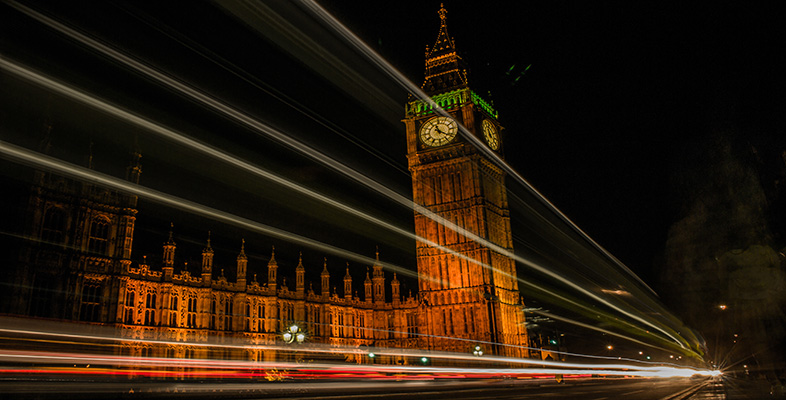1.3 Politics: a view from the street
As you saw in Activity 2, politics permeates and affects our entire lives – often without us realising just how much of our daily routine is in one way or another affected by politics and informed by political decisions. Yet the importance of politics to everyday life, and the degree to which many of our daily activities are ‘political’, is not always recognised. In fact, for many people, politics still seems like the domain of professionals (such as politicians and political analysts).
This short video, ‘Politics: a view from the street’, introduces you to people’s views on politics.
Transcript: Politics: a view from the street
Which words summarise politics?
Is politics important?
Are you involved in politics?
How does politics affect your everyday life?
Activity 3
Watch the video, and as you do so, think about some of the recurring answers, and the similarities and differences, in the views expressed. Then, in the boxes below, try jotting down some responses to the following questions.
1. What are the most common associations the people in ‘Politics: a view from the street’ make with politics? Why do you think this is the case?
Discussion
Unfortunately, most people in the video seemed to view politics in a rather negative light. The words ‘corruption’, ‘mistrust’ and ‘lies’ came up quite often. On a more positive note, some people associated politics with representation, governance, leadership and community. Yet on the whole, the perception of politics struck us as rather negative. There are a lot of reasons why this might be the case, some of which were alluded to by the interviewees. These include:
- frustration that promises made by politicians are rarely kept
- frustration at the fact that the political world seems to comprise a lot of talk (and red tape) and very little concrete action
- the feeling that the world of politics (and politicians) is very far removed from, and often inaccessible to, ordinary people.
Most of those interviewed also seemed to associate politics closely with politicians, which might be another reason for a generally negative perception of politics. As you progress through the course, you will see that politics is about much more than politicians – therefore the negative perception many of us have of politicians should not automatically lead to a negative perception of politics.
Although not mentioned in ‘Politics: a view from the street’, the media might also contribute to the generally negative perception of politics – after all, the news we watch and the newspapers we read are full of stories about corruption, lying and scandal. As ‘scandal sells’, people’s negative perceptions of politics are often confirmed or reinforced by the media.
2. Do most of those interviewed think politics is important? How do they feel it impacts on their day-to-day lives?
Discussion
Everyone interviewed thought that politics is of vital importance and that it affects almost all aspects of their lives – ‘from the cradle to the grave’, as one of the interviewees says. Through policy, politics determines and regulates everything, from the way our rubbish is collected to how much things cost at the supermarket to the cost and quality of education and health care.
3. To what extent were most of those interviewed involved in politics? What were the reasons given for those not involved in politics?
Discussion
Although everyone interviewed thought that politics is of crucial importance and has a very tangible effect on their day-to-day lives, only a few people considered themselves to be actively politically involved – as trade union members and representatives, or as members of political parties. Many saw their political involvement as passive rather than active; they voted when called upon to vote, but did not get involved beyond that. Some made the conscious choice to ‘stay away from politics’ entirely, expressing frustration at their lack of power to effect change and indicating cynicism towards politicians.
Interestingly, most of those who were not involved were not apathetic, indifferent to or uninterested in the world of politics; their lack of involvement seemed to originate not in apathy but in frustration and disappointment with politicians. As one of the interviewees points out, ‘We don’t dislike politics, we dislike politicians’. Once again, the close association between politics and politicians seems quite strong. As you progress on this course, you will see that there is a lot more to politics than politicians. And, as you will also see, particularly when you listen to Milton Keynes South MP Iain Stewart (as of May 2015) in ‘Perspectives on politics’, there is a lot more to politicians than what is portrayed in the media.
